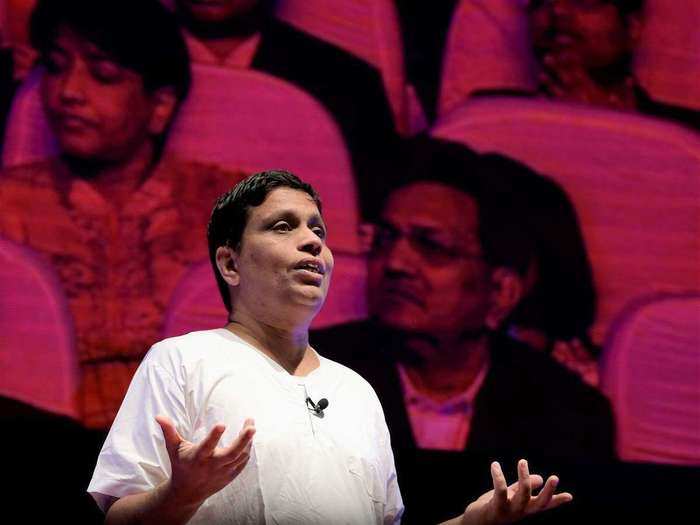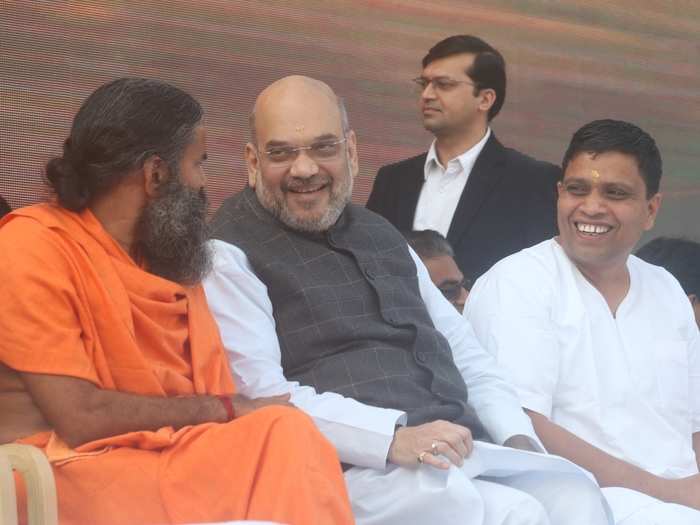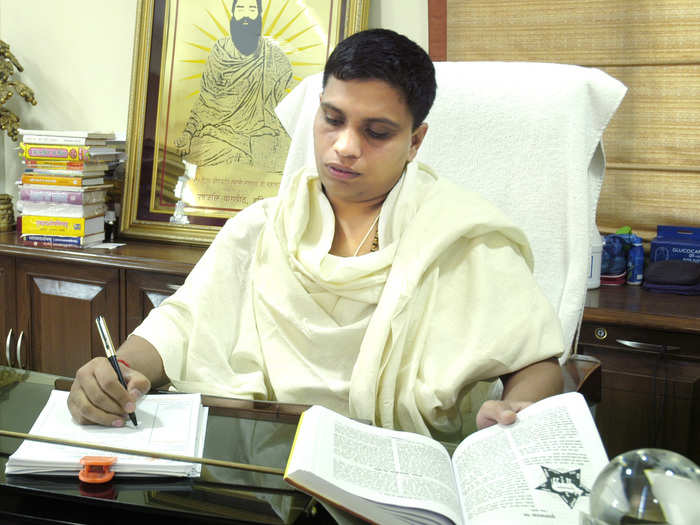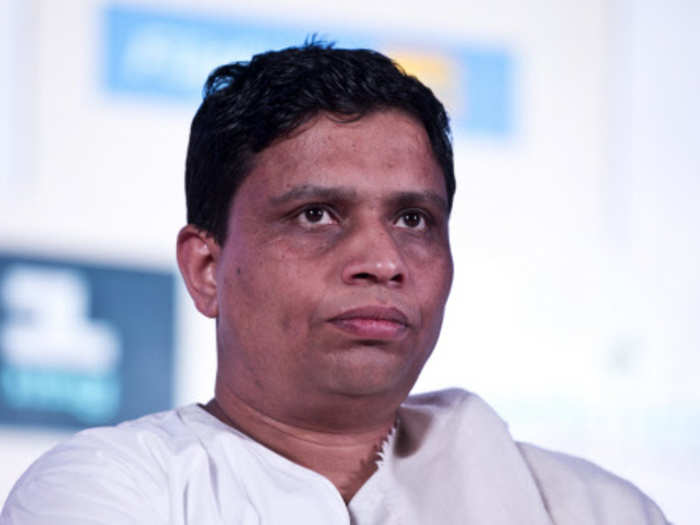BCCL
- Patanjali today launched a self-proclaimed “a cure to coronavirus” — Coronil.
- While there is no scientific research that claims Ayurved — the medical science of ancient India — may cure coronavirus, Patanjali claims that Coronil can cure coronavirus in three to 14 days
- As Patanjali professes to another breakthrough, here’s a look at the man behind the rise of Patanjali in India.
There’s nothing that Patanjali CEO Acharya Balkrishna thinks his company can’t make. It’s not been even two months since the launch of
Patanjali’s e-commerce platform in India and now, they have launched a self-proclaimed “
a cure to coronavirus” — Coronil.
While there is no scientific research that claims Ayurved — the medical science of ancient India — may cure coronavirus, Patanjali claims
that Coronil can cure coronavirus in three to 14 days. The massive FMCG company is also launching an app to help people in India order the coronavirus drug online — which will be delivered between one to three days.
Balkrishna
claims the company has conducted a clinical case study on hundreds of positive patients and were able to stop the spread of coronavirus using Coronil with “100% favourable results.”
As Patanjali professes to another breakthrough, here’s a look at the man behind the rise of Patanjali in India:
The billionaire who wants to dip a finger in every business
Balakrishna might not be the face of Patanjali — that honour is reserved for Yoga-guru Baba Ramdev — but he does own about 98.5% stake in the Ayurvedic giant turned FMCG. Since its inception, it has been taking on big companies like Walmart and Amazon in India.
The 47-year old Balakrishna, who’s worth $1.6 billion according to Forbes, started his journey way back in 1995 when he set up Divya Pharmacy along with his friend and Ramdev — who is known to have strong connections with the right-wing political party in India.
A decade later, Balakrishna launched Patanjali Ayurved — by taking a personal loan of up to ₹60 crore (around $793,020).
Now, Patanjali — which has set its sights on becoming a ₹ 40,000 crore FMCG (around $5 billion) — is involved in almost every business from food to clothing to power to private security, and even cloud services and IT solutions.
The billionaire who wants to replace multinationals with Swadeshi products in India
BCCL
Patanjali became a household name in India within a year of its launch on the backbone of being a completely swadeshi company. Ever since they disrupted the market, they had only one target in their mind — replacing the multinational companies in India with their own local enterprise.
"We don't want to put anyone down, but we would like to instil swadeshi pride so that Indian money does not go out of the country," Ramdev told the media.
Balakrishna, who reportedly works 15 hours a day even on public holidays or Sunday, doubled annual sales every year between 2013 and 2017 — that’s four straight years in a row. This took Patanjali from ₹450 crore (around $59 million) in 2013 to ₹10,500 crore (around $1 billion) in 2017.
A part of the reason for its success is attributed to its inexpensive prices for household products — substitutes for what multinationals offer at a premium. Moreover, credit is also given to Balakrishna’s leadership which focuses on making fast decisions.
A section of
the society also says Patanjali and Balakrishna got big thanks Baba Ramdev’s rise to fame through his yoga programmes on live channels — which gained even more popularity after the
yoga guru stood against the then Manmohan Singh-led government beside Anna Hazare on his hunger strike against corruption.
Thriving in BJP’s “ideal ecosystem”
IANS
Balakrishna and Ramdev are fast friends before becoming business partners. They met when they were studying at the same gurukul — a residential Indian school — in the 1990s. At the school, Balakrishna focused on Ayurveda while Ramdev studied Yoga.
Baba Ramdev shares a symbiotic relationship with Narendra Modi and the Bharatiya Janata Party — always vocal about supporting the right-wing party.
Patanjali might have been famous because of its rigorous expansion model but Ramdev too believes the BJP government gave an “ideal ecosystem” to support his business.
According to media reports, Balakrishna also reportedly donated
a sum of a million rupees (about $13,211) to BJP in 2009 — a few years before the party rose to power.
Acharya Balakrishan’s many controversies
While Balakrishna gets all the credit to build a multi-billion dollar empire, he’s also been a part of several controversies. Recently, many Twitter users trolled him for claiming to have discovered the cure for coronavirus.
Previously, the Central Bureau of Investigation filed a case of forgery and cheating against Balakrishna in 2016 — which both Balakrishna and Ramdev denied. CBI claimed the degree which Balakrishna got from Sampurnanand Sanskrit Vishwavidyalaya in Varanasi was fake.
The case got so ugly that the CBI requested the Ministry of External Affairs to revoke Balakrishna’s passport — claiming that he forged the documents to get an Indian passport. He w
as given clean chit two years after the case was registered
The Acharya without any formal education
In 2017, Acharya Balakrishna entered the billionaire club in India — becoming the eighth richest person in the country. He is one of few personalities to rise from rags to riches without any formal education rather and, instead, being well versed with the Vedas — an ancient Indian religious text.
Balakrishna, who hails from Nepal, is reportedly famous for the way he conducts his meetings — taking no more than 5 minutes to make a decision.
Despite all the effort, Balakrishna has lost over 80% of his wealth in the last few years. Patanjali — whose revenues have also declined in the last two years — is trying to regain market share to become the largest FMCG in the country. And, India’s latest anti-China sentiments may also help it along to hopefully return Balakrishna to his former glory.





